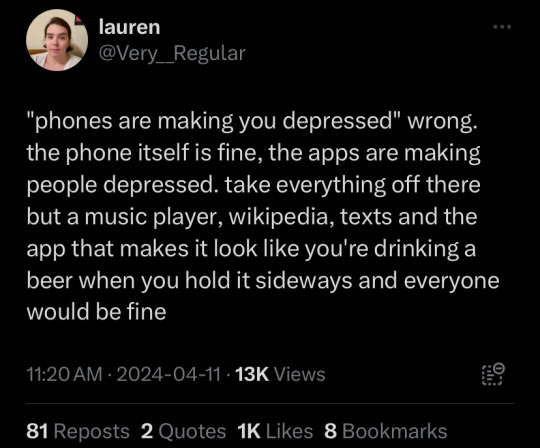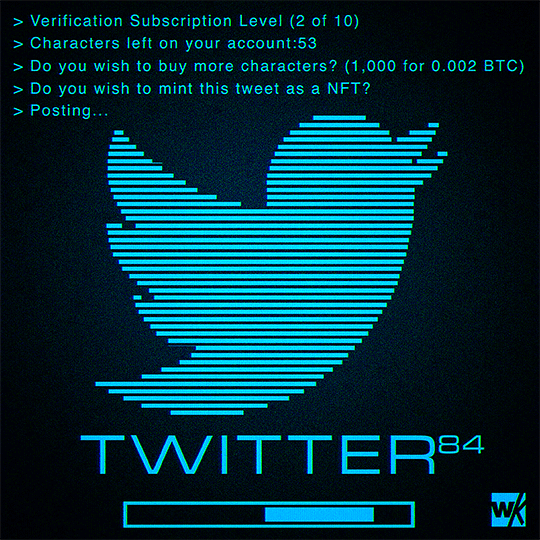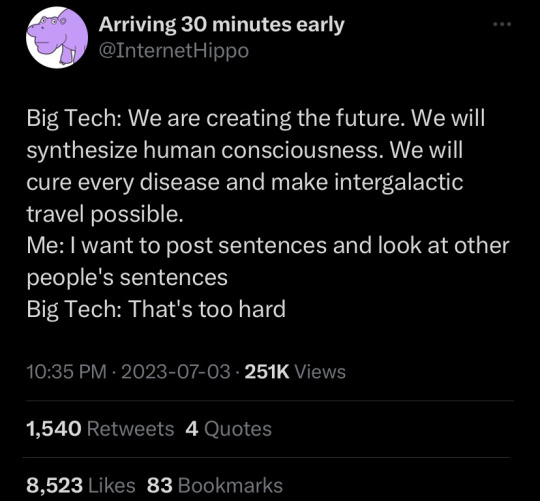#social technology
Text
i know negative attention is enough for some of you but really, the urge to correct a public embarrassment to the trans community isn’t obsession. very cool of you to start creeping on a stranger instead of acknowledging how ignorant you sound though! i’m glad misquoting foucault got you the notes, since that matters more than trans people of color to you.
2 notes
·
View notes
Text

Kimya Dawson - At The Seams
Fatima Al Qadiri - Power
Klee Benally - ACAB Round Dance Song
Junip - The Ghost of Tom Joad
John Maus - Cop Killer
Prince - Baltimore
Poliça - Wedding
Blood Orange - Sandra's Smile
Yves Tumor - Noid
The Go! Team - Huddle Formation
DJ Rashad - Shoot Me
RP Boo - Havoc Devestation
Jlin - Guantanamo
OBUXUM - HE(R)STORY
Riad Awwad, Hanan Awwad and Mahmoud Darwish - Intifada
The Orb ft. Lee Scratch Perry - Police & Thieves
Omar-S ft. Amp Fiddler - Ah' Revolution (Poli Grip For Partials Nik Mix)
Halluci Nation - Woodcarver
Moor Jewelry - Death Booming
Divide And Dissolve - Crimes Of The Future
5 notes
·
View notes
Text
Wow I figured out a great social technology for me personally! (Or, kind of noticed that a particular thing would be a great social technology for me personally).
The someone's-day thing! (Or two hours, or video call, or...). Can be between fewer people including two.
Specifically in the - 'it's your day so you get to say things you want (to do)'. (Of course with some kind of no system etc). Not as something rare like birthdays (thought of which is what got me on the subject) but more often etc.
I think this would be very good for me, because I like doing things for people (but I need to know they want them) and I have desires for things I want re people (but I have a lot of barrier etc for asking etc, worry about imposing, worry about asking too much...)
And this would be good for *both* things, and have the built in 'balance', and hit my 'well this is what you're supposed to do'
7 notes
·
View notes
Note
making a burner to evade somebodies block IS creep behavior, sorry.
asking someone to elaborate just to block them is immature attention seeking behavior.
nobodys obsessed with you girl, i just know too much about foucalts (western-centric) theories to watch you bullshit your follower base for notes.
the psuedointellectualism is frankly pathetic, but its maybe worse to be dumb enough to take that post at face value just bc it uses a big word you think sounds nice
#genderyomi#why ask? did you expect me to just not answer? im not that type#you seek attention then get mad when you get it thats pretty funny actually#i care less about you manufacturing a scenario where im weird for engaging than i do about the general principle of spreading misinfo#sOcIaL tEcHnOlOgY#lgbt#queer
0 notes
Text

3K notes
·
View notes
Text

Twitter84
#twitter#cyberpunk#pop art#crypto#gif#contemporary art#cyber punk#cyberspace#pixel art#cyberculture#retrocomputing#technology#scifi#1984#social media#post internet#art#dystopian#aesthetic#animation
452 notes
·
View notes
Link
Today’s update enables a highly requested feature – Discord Voice on Xbox consoles allows you to talk with your friends and community while you play your favorite games. Planning a few rounds of multiplayer action in Halo Infinite with buddies on both console and PC? Exploring new biomes with your friends in Minecraft? See them already playing a game that supports cross-play? Connect to their voice channel and chat as you all play.
First of all, as someone who has spent the last however many X years professionally telling people about the coming metaverse and insisting that software platforms should be considered ‘worlds’ - its very interesting to see the use of the word worlds in the heading.
Secondly, Voice chat was launched as a day 1 xbox live feature in 2002. I have a whole chapter on how badly Microsoft fucked up voice chat/moderation/governance etc on the network in my book. But sufficed to say I belive that that Microsoft set humanity back decades with their poor handling of the voice network during its first 10 years.
This partnership shows that voice communication is now a mature enough ‘social technology’ in 2022. That people can be present (and civil) with one another across platforms and software stacks, is a significant cultural advancement. We will see more of this it won’t be long until we end up with new/adopted standard for voice chat like we used to have with xmpp.
The fact that this sort of partnership and interoperability is coming from he gaming space is also significant. Whats about to happen in the coming 5 years or so is going to be the death nell for lots of web2 players. There IS a reason Facebook has pivoted to ‘Meta’ - they see some of the writing on the wall.
Now that voice can cross worlds, it won’t be long until users demand save, secure interoperability between chat platforms for example.
#worldrunners#world running#xbox live#xbox discord#discord#xbox#voice chat#voice#metaverse#technology#platforms#microsoft#facebook#meta#social technology
0 notes
Text
"Is social media designed to reward people for acting badly?
The answer is clearly yes, given that the reward structure on social media platforms relies on popularity, as indicated by the number of responses – likes and comments – a post receives from other users. Black-box algorithms then further amplify the spread of posts that have attracted attention.
Sharing widely read content, by itself, isn’t a problem. But it becomes a problem when attention-getting, controversial content is prioritized by design. Given the design of social media sites, users form habits to automatically share the most engaging information regardless of its accuracy and potential harm. Offensive statements, attacks on out groups and false news are amplified, and misinformation often spreads further and faster than the truth.
We are two social psychologists and a marketing scholar. Our research, presented at the 2023 Nobel Prize Summit, shows that social media actually has the ability to create user habits to share high-quality content. After a few tweaks to the reward structure of social media platforms, users begin to share information that is accurate and fact-based...
Re-targeting rewards
To investigate the effect of a new reward structure, we gave financial rewards to some users for sharing accurate content and not sharing misinformation. These financial rewards simulated the positive social feedback, such as likes, that users typically receive when they share content on platforms. In essence, we created a new reward structure based on accuracy instead of attention.
As on popular social media platforms, participants in our research learned what got rewarded by sharing information and observing the outcome, without being explicitly informed of the rewards beforehand. This means that the intervention did not change the users’ goals, just their online experiences. After the change in reward structure, participants shared significantly more content that was accurate. More remarkably, users continued to share accurate content even after we removed rewards for accuracy in a subsequent round of testing. These results show that users can be given incentives to share accurate information as a matter of habit.
A different group of users received rewards for sharing misinformation and for not sharing accurate content. Surprisingly, their sharing most resembled that of users who shared news as they normally would, without any financial reward. The striking similarity between these groups reveals that social media platforms encourage users to share attention-getting content that engages others at the expense of accuracy and safety...
Doing right and doing well
Our approach, using the existing rewards on social media to create incentives for accuracy, tackles misinformation spread without significantly disrupting the sites’ business model. This has the additional advantage of altering rewards instead of introducing content restrictions, which are often controversial and costly in financial and human terms.
Implementing our proposed reward system for news sharing carries minimal costs and can be easily integrated into existing platforms. The key idea is to provide users with rewards in the form of social recognition when they share accurate news content. This can be achieved by introducing response buttons to indicate trust and accuracy. By incorporating social recognition for accurate content, algorithms that amplify popular content can leverage crowdsourcing to identify and amplify truthful information.
Both sides of the political aisle now agree that social media has challenges, and our data pinpoints the root of the problem: the design of social media platforms."
And here's the video of one of the scientsts presenting this research at the Nobel Prize Summit!
youtube
-Article via The Conversation, August 1, 2023. Video via the Nobel Prize's official Youtube channel, Nobel Prize, posted May 31, 2023.
#social media#misinformation#social networks#social#algorithm#big tech#technology#enshittification#internet#nobel prize#psychology#behavioral psychology#good news#hope#Youtube#video
466 notes
·
View notes
Text




Maurice Sendak and Tony Kushner - Brundibar
6 notes
·
View notes
Text
very glad that i was already in my 20s and very settled in my social media habits when tiktok became a thing because seeing how the threat of being filmed for someone else's clout wherever you go has affected younger people around me is terrifying tbh. talking to my younger sister a few months ago i brought up how much i like cutting my own hair and dressing weirdly even if it ends up looking bad and she said something to the effect of 'oh, i could never do that, what if someone put me on tiktok.' talking to my 20 year old cousin yesterday, she mentioned how she's scared to post cosplays on tiktok in case she gets a detail wrong and gets cancelled for it. like i'm not under any illusions that social media was a perfect place 4 or 5 years ago or whatever and i definitely had a ton of anxiety about stuff online when i was in my late teens/early 20s but i'm pretty sure i never worried about that stuff yknow
#kaylee.txt#not to be all 'i'm worried about the youths' bc like. i'm only 24 lmao#(and also not to be all 'technology is bad and thomas edison was a witch' or anything yknow)#but the combo of having ur real face attached to all ur dumb teenage hot takes + ppl thinking theyre in the right to film#u if ur perceived as stepping even a little bit outside of social norms is like. i cannot imagine what thats doing to ppls brains rn
678 notes
·
View notes
Link
Prof Earl Miller, a neuroscientist at Massachusetts Institute of Technology, explained one to me. He said “your brain can only produce one or two thoughts” in your conscious mind at once. That’s it. “We’re very, very single-minded.” We have “very limited cognitive capacity”. But we have fallen for an enormous delusion. The average teenager now believes they can follow six forms of media at the same time. When neuroscientists studied this, they found that when people believe they are doing several things at once, they are actually juggling. “They’re switching back and forth. They don’t notice the switching because their brain sort of papers it over to give a seamless experience of consciousness, but what they’re actually doing is switching and reconfiguring their brain moment-to-moment, task-to-task – [and] that comes with a cost.” Imagine, say, you are doing your tax return, and you receive a text, and you look at it – it’s only a glance, taking three seconds – and then you go back to your tax return. In that moment, “your brain has to reconfigure, when it goes from one task to another”, he said. You have to remember what you were doing before, and you have to remember what you thought about it. When this happens, the evidence shows that “your performance drops. You’re slower. All as a result of the switching.”
This is called the “switch-cost effect”. It means that if you check your texts while trying to work, you aren’t only losing the little bursts of time you spend looking at the texts themselves – you are also losing the time it takes to refocus afterwards, which turns out to be a huge amount. For example, one study at the Carnegie Mellon University’s human computer interaction lab took 136 students and got them to sit a test. Some of them had to have their phones switched off, and others had their phones on and received intermittent text messages. The students who received messages performed, on average, 20% worse. It seems to me that almost all of us are currently losing that 20% of our brainpower, almost all the time. Miller told me that as a result we now live in “a perfect storm of cognitive degradation”.
6K notes
·
View notes
Text
People getting mad about Firefox switching to using hardware acceleration for video playback because they think "hardware acceleration" is a form of DRM is basically the browser equivalent of people freaking out because some random social media platform's terms of service says they own your posts, then when you read what the ToS in question actually says it's literally just "you grant us the right to show your posts to other people".
5K notes
·
View notes
Text

2K notes
·
View notes
Text
get ready for the next influx of twitter users migrating to tumblr


997 notes
·
View notes
Text
Better failure for social media

Content moderation is fundamentally about making social media work better, but there are two other considerations that determine how social media fails: end-to-end (E2E), and freedom of exit. These are much neglected, and that’s a pity, because how a system fails is every bit as important as how it works.
Of course, commercial social media sites don’t want to be good, they want to be profitable. The unique dynamics of social media allow the companies to uncouple quality from profit, and more’s the pity.
Social media grows thanks to network effects — you join Twitter to hang out with the people who are there, and then other people join to hang out with you. The more users Twitter accumulates, the more users it can accumulate. But social media sites stay big thanks to high switching costs: the more you have to give up to leave a social media site, the harder it is to go:
https://www.eff.org/deeplinks/2021/08/facebooks-secret-war-switching-costs
Nature bequeaths some in-built switching costs on social media, primarily the coordination problem of reaching consensus on where you and the people in your community should go next. The more friends you share a social media platform with, the higher these costs are. If you’ve ever tried to get ten friends to agree on where to go for dinner, you know how this works. Now imagine trying to get all your friends to agree on where to go for dinner, for the rest of their lives!
But these costs aren’t insurmountable. Network effects, after all, are a double-edged sword. Some users are above-average draws for others, and if a critical mass of these important nodes in the network map depart for a new service — like, say, Mastodon — that service becomes the presumptive successor to the existing giants.
When that happens — when Mastodon becomes “the place we’ll all go when Twitter finally becomes unbearable” — the downsides of network effects kick in and the double-edged sword begins to carve away at a service’s user-base. It’s one thing to argue about which restaurant we should go to tonight, it’s another to ask whether we should join our friends at the new restaurant where they’re already eating.
Social media sites who want to keep their users’ business walk a fine line: they can simply treat those users well, showing them the things they ask to see, not spying on them, paying to police their service to reduce harassment, etc. But these are costly choices: if you show users the things they ask to see, you can’t charge businesses to show them things they don’t want to see. If you don’t spy on users, you can’t sell targeting services to people who want to force them to look at things they’re uninterested in. Every moderator you pay to reduce harassment draws a salary at the expense of your shareholders, and every catastrophe that moderator prevents is a catastrophe you can’t turn into monetizable attention as gawking users flock to it.
So social media sites are always trying to optimize their mistreatment of users, mistreating them (and thus profiting from them) right up to the point where they are ready to switch, but without actually pushing them over the edge.
One way to keep dissatisfied users from leaving is by extracting a penalty from them for their disloyalty. You can lock in their data, their social relationships, or, if they’re “creators” (and disproportionately likely to be key network nodes whose defection to a rival triggers mass departures from their fans), you can take their audiences hostage.
The dominant social media firms all practice a low-grade, tacit form of hostage-taking. Facebook downranks content that links to other sites on the internet. Instagram prohibits links in posts, limiting creators to “Links in bio.” Tiktok doesn’t even allow links. All of this serves as a brake on high-follower users who seek to migrate their audiences to better platforms.
But these strategies are unstable. When a platform becomes worse for users (say, because it mandates nonconsensual surveillance and ramps up advertising), they may actively seek out other places on which to follow each other, and the creators they enjoy. When a rival platform emerges as the presumptive successor to an incumbent, users no longer face the friction of knowing which rival they should resettle to.
When platforms’ enshittification strategies overshoot this way, users flee in droves, and then it’s time for the desperate platform managers to abandon the pretense of providing a public square. Yesterday, Elon Musk’s Twitter rolled out a policy prohibiting users from posting links to rival platforms:
https://web.archive.org/web/20221218173806/https://help.twitter.com/en/rules-and-policies/social-platforms-policy
This policy was explicitly aimed at preventing users from telling each other where they could be found after they leave Twitter:
https://web.archive.org/web/20221219015355/https://twitter.com/TwitterSupport/status/1604531261791522817
This, in turn, was a response to many users posting regular messages explaining why they were leaving Twitter and how they could be found on other platforms. In particular, Twitter management was concerned with departures by high-follower users like Taylor Lorenz, who was retroactively punished for violating the policy, though it didn’t exist when she violated it:
https://deadline.com/2022/12/washington-post-journalist-taylor-lorenz-suspended-twitter-1235202034/
As Elon Musk wrote last spring: “The acid test for two competing socioeconomic systems is which side needs to build a wall to keep people from escaping? That’s the bad one!”
https://twitter.com/elonmusk/status/1533616384747442176
This isn’t particularly insightful. It’s obvious that any system that requires high walls and punishments to stay in business isn’t serving its users, whose presence is attributable to coercion, not fulfillment. Of course, the people who operate these systems have all manner of rationalizations for them.
The Berlin Wall, we were told, wasn’t there to keep East Germans in — rather, it was there to keep the teeming hordes clamoring to live in the workers’ paradise out. In the same way, platforms will claim that they’re not blocking outlinks or sideloading because they want to prevent users from defecting to a competitor, but rather, to protect those users from external threats.
This rationalization quickly wears thin, and then new ones step in. For example, you might claim that telling your friends that you’re leaving and asking them to meet you elsewhere is like “giv[ing] a talk for a corporation [and] promot[ing] other corporations”:
https://mobile.twitter.com/mayemusk/status/1604550452447690752
Or you might claim that it’s like “running Wendy’s ads [on] McDonalds property,” rather than turning to your friends and saying, “The food at McDonalds sucks, let’s go eat at Wendy’s instead”:
https://twitter.com/doctorow/status/1604559316237037568
The truth is that any service that won’t let you leave isn’t in the business of serving you, it’s in the business of harming you. The only reason to build a wall around your service — to impose any switching costs on users- is so that you can fuck them over without risking their departure.
The platforms want to be Anatevka, and we the villagers of Fiddler On the Roof, stuck plodding the muddy, Cossack-haunted roads by the threat of losing all our friends if we try to leave:
https://doctorow.medium.com/how-to-leave-dying-social-media-platforms-9fc550fe5abf
That’s where freedom of exit comes in. The public should have the right to leave, and companies should not be permitted to make that departure burdensome. Any burdens we permit companies to impose is an invitation to abuse of their users.
This is why governments are handing down new interoperability mandates: the EU’s Digital Markets Act forces the largest companies to offer APIs so that smaller rivals can plug into them and let users walkaway from Big Tech into new kinds of platforms — small businesses, co-ops, nonprofits, hobby sites — that treat them better. These small players are overwhelmingly part of the fediverse: the federated social media sites that allow users to connect to one another irrespective of which server or service they use.
The creators of these platforms have pledged themselves to freedom of exit. Mastodon ships with a “Move Followers” and “Move Following” feature that lets you quit one server and set up shop on another, without losing any of the accounts you follow or the accounts that follow you:
https://codingitwrong.com/2022/10/10/migrating-a-mastodon-account.html
This feature is as yet obscure, because the exodus to Mastodon is still young. Users who flocked to servers without knowing much about their managers have, by and large, not yet run into problems with the site operators. The early trickle of horror stories about petty authoritarianism from Mastodon sysops conspicuously fail to mention that if the management of a particular instance turns tyrant, you can click two links, export your whole social graph, sign up for a rival, click two more links and be back at it.
This feature will become more prominent, because there is nothing about running a Mastodon server that means that you are good at running a Mastodon server. Elon Musk isn’t an evil genius — he’s an ordinary mediocrity who lucked into a lot of power and very little accountability. Some Mastodon operators will have Musk-like tendencies that they will unleash on their users, and the difference will be that those users can click two links and move elsewhere. Bye-eee!
Freedom of exit isn’t just a matter of the human right of movement, it’s also a labor issue. Online creators constitute a serious draw for social media services. All things being equal, these services would rather coerce creators’ participation — by holding their audiences hostage — than persuade creators to remain by offering them an honest chance to ply their trade.
Platforms have a variety of strategies for chaining creators to their services: in addition to making it harder for creators to coordinate with their audiences in a mass departure, platforms can use DRM, as Audible does, to prevent creators’ customers from moving the media they purchase to a rival’s app or player.
Then there’s “freedom of reach”: platforms routinely and deceptively conflate recommending a creator’s work with showing that creator’s work to the people who explicitly asked to see it.
https://pluralistic.net/2022/12/10/e2e/#the-censors-pen
When you follow or subscribe to a feed, that is not a “signal” to be mixed into the recommendation system. It’s an order: “Show me this.” Not “Show me things like this.”
Show.
Me.
This.
But there’s no money in showing people the things they tell you they want to see. If Amazon showed shoppers the products they searched for, they couldn’t earn $31b/year on an “ad business” that fills the first six screens of results with rival products who’ve paid to be displayed over the product you’re seeking:
https://pluralistic.net/2022/11/28/enshittification/#relentless-payola
If Spotify played you the albums you searched for, it couldn’t redirect you to playlists artists have to shell out payola to be included on:
https://pluralistic.net/2022/09/12/streaming-doesnt-pay/#stunt-publishing
And if you only see what you ask for, then product managers whose KPI is whether they entice you to “discover” something else won’t get a bonus every time you fatfinger a part of your screen that navigates you away from the thing you specifically requested:
https://doctorow.medium.com/the-fatfinger-economy-7c7b3b54925c
Musk, meanwhile, has announced that you won’t see messages from the people you follow unless they pay for Twitter Blue:
https://www.wired.com/story/what-is-twitter-blue/
And also that you will be nonconsensually opted into seeing more “recommended” content from people you don’t follow (but who can be extorted out of payola for the privilege):
https://www.socialmediatoday.com/news/Twitter-Expands-Content-Recommendations/637697/
Musk sees Twitter as a publisher, not a social media site:
https://twitter.com/elonmusk/status/1604588904828600320
Which is why he’s so indifferent to the collateral damage from this payola/hostage scam. Yes, Twitter is a place where famous and semi-famous people talk to their audiences, but it is primarily a place where those audiences talk to each other — that is, a public square.
This is the Facebook death-spiral: charging to people to follow to reach you, and burying the things they say in a torrent of payola-funded spam. It’s the vision of someone who thinks of other people as things to use — to pump up your share price or market your goods to — not worthy of consideration.
As Terry Pratchett’s Granny Weatherwax put it: “Sin is when you treat people like things. Including yourself. That’s what sin is.”
Mastodon isn’t perfect, but its flaws are neither fatal nor permanent. The idea that centralized media is “easier” surely reflects the hundreds of billions of dollars that have been pumped into refining social media Roach Motels (“users check in, but they don’t check out”).
Until a comparable sum has been spent refining decentralized, federated services, any claims about the impossibility of making the fediverse work for mass audiences should be treated as unfalsifiable, motivated reasoning.
Meanwhile, Mastodon has gotten two things right that no other social media giant has even seriously attempted:
I. If you follow someone on Mastodon, you’ll see everything they post; and
II. If you leave a Mastodon server, you can take both your followers and the people you follow with you.
The most common criticism of Mastodon is that you must rely on individual moderators who may be underresourced, incompetent on malicious. This is indeed a serious problem, but it isn’t the same serious problem that Twitter has. When Twitter is incompetent, malicious, or underresourced, your departure comes at a dear price.
On Mastodon, your choice is: tolerate bad moderation, or click two links and move somewhere else.
On Twitter, your choice is: tolerate moderation, or lose contact with all the people you care about and all the people who care about you.
The interoperability mandates in the Digital Markets Act (and in the US ACCESS Act, which seems unlikely to get a vote in this session of Congress) only force the largest platforms to open up, but Mastodon shows us the utility of interop for smaller services, too.
There are lots of domains in which “dominance” shouldn’t be the sole criteria for whether you are expected to treat your customers fairly.
A doctor with a small practice who leaks all ten patients’ data harms those patients as surely as a hospital system with a million patients would have. A small-time wedding photographer who refuses to turn over your pictures unless you pay a surprise bill is every bit as harmful to you as a giant chain that has the same practice.
As we move into the realm of smalltime, community-oriented social media servers, we should be looking to avoid the pitfalls of the social media bubble that’s bursting around us. No matter what the size of the service, let’s ensure that it lets us leave, and respects the end-to-end principle, that any two people who want to talk to each other should be allowed to do so, without interference from the people who operate their communications infrastructure.
Image:
Cryteria (modified)
https://commons.wikimedia.org/wiki/File:HAL9000.svg
CC BY 3.0
https://creativecommons.org/licenses/by/3.0/deed.en
Heisenberg Media (modified)
https://commons.wikimedia.org/wiki/File:Elon_Musk_-_The_Summit_2013.jpg
CC BY 2.0
https://creativecommons.org/licenses/by/2.0/deed.en
[Image ID: Moses confronting the Pharaoh, demanding that he release the Hebrews. Pharaoh’s face has been replaced with Elon Musk’s. Moses holds a Twitter logo in his outstretched hand. The faces embossed in the columns of Pharaoh’s audience hall have been replaced with the menacing red eye of HAL9000 from 2001: A Space Odyssey. The wall over Pharaoh’s head has been replaced with a Matrix ‘code waterfall’ effect. Moses’s head has been replaced with that of the Mastodon mascot.]
#pluralistic#e2e#end-to-end#freedom of reach#mastodon#interoperability#social media#twitter#economy#creator economy#artists rights#content moderation#como#right of exodus#let my tweeters go#exodus#right of exit#technological self-determination
3K notes
·
View notes